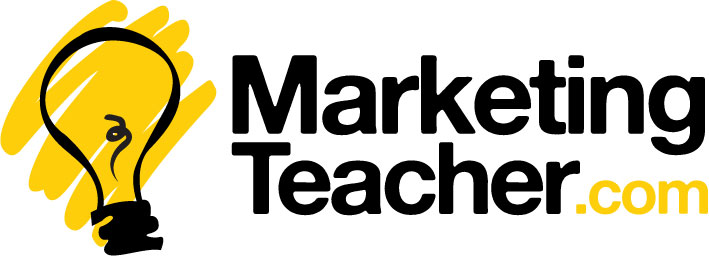Digital Marketing and Promotion: Digital Advertising
This lesson looks at ways of increasing the popularity of your website by looking at external sources of Internet Advertising.
Pay-Per-Click Advertising
Google Adwords is a cost-per-click (CPC) online advertising program. Essentially that means that you decide upon a keyword that relates closely to your product or service.
Affiliate Marketing.
Affiliate Marketing is where an organization offers and incentive to other web-based organizations to market the products or services that it offers. So a company selling surfboards could have an affiliate program that is offered to other web-based organizations that offer information on surfing destinations. The affiliate program is supplied by one organization – whereas the ‘affiliate’ is the website that promotes on behalf of the supplying organization.
Put simply – affiliate marketing is a basic agency arrangement. There is rarely any pay-per-click cash, but affiliates tend to take a commission on any goods sold as a result of the click. What does it look like? Affiliate marketing sees a banners advert or a text advert placed upon an affiliate’s website. When the advert attracts a click, the visitor is taken through to the site that originated the affiliate program. No cash changes hands until there is a sale, but affiliate rewards tend to be higher than regular pay-per-click. Commission Junction (CJ) is a well-known example of an Affiliate Marketing company. CJ acts as an intermediary between affiliate program. suppliers of all types and sizes. So if you have a successful website, that does well in the search engines and is popular with visitors, you should register with CJ and place affiliate adds onto your site. Click here to visit Commission Junction.
Offline Promotions Strategies.
Of course to promote website you should also consider offline promotion strategies such as those used by non- Internet businesses. Our Lessonstore contains lessons on Promotion (as part of the Marketing Mix) and also Marketing Communications (and its own mix).
Here a selection of other suitable approaches to offline promotion:
- Create a media release or announce a media conference regarding your website.
- Advertise using other media such as TV, billboards, radio, newspapers and magazines, or the cinema.
- Send out direct mail shots and run campaigns.
- Print your domain name and e-mail contact addresses upon all of your corporate material.
- Offer free products and services. FREE is one of the most powerful words in marketing.
- Provide free material e.g. fact sheets or guides that could be posted or e-mailed to customers.
- Offer competitions or quizzes (with prizes when possible).
- And many, many others…
Using Google’s tools, you price how much it would cost your per-click for your chosen keyword – this could be 10 cents, $1.50 or more, depending on the popularity of the keyword. So the keyword – ‘marketing’ – would be more expensive than the keyword – ‘marketing cheese china’ – because of its level of popularity. You then allocate a budget, and pay Google by credit card. You can control the length of your campaign, or end it as soon as the money runs out. Alternatively, companies often opt for the services of a specialist agency in PPC management (Pay-Per-Click management) or recruit a verified Google Adwords Professional.
Q:Where do my Adwords adverts appear and what do they look like?
Adverts appear alongside Google search results – so go to Google and search for ‘marketing.’ The ad’s appearing along side the main search results are CPC. Ad’s also appear on selected content websites – such as www.chichesteruk.com – look at the adverts along the top, and down the right hand column – this is where ad’s based upon the keyword ‘Chichester’ would appear. You only pay for adverts that get clicked – not for page views – so you pay nothing if your advert is simply viewed.
There is also an opportunity for ‘Smart Pricing’ whereby you pay more for the advert if a sale is guaranteed e.g. you have a website based upon fishing – you write a review of a new type of fishing rod, the visitor then sees an ad for the same rod in an Adwords text ad running on the ‘same page,’ then clicks on it – and buys from the advertiser.
Adwords is a very targeted and controllable way of online advertising – hence the huge rises in income and profit for Google over recent times. Click here to go to Google Adwords.
Search Marketing.
Overture and Yahoo!
Overture is the Yahoo equivalent of Google’s Adwords. Now known as Yahoo! Search Marketing, Overture has a series of sub-products that make up its digital marketing program. Here are some examples:
(a) Sponsored search – displays your advert at the top of the search engine results. So your potential customers search for a ‘keyword’ and your advert appears at the top of the results page (this is very similar to Adwords). Again, as with Adwords, the advertisers bid against each other to obtain the position that will generate the most convertible traffic to their site. Popular keywords will cost more – obviously.
(b) Local Advertising – gets your business listed in Yahoo’s business directory. So if you wish to promote products in specific regions next to specific search keywords, this is a very targeted geographical service.
Overture has many other similar services such as Search Submit, Product Submit, Travel Submit and Directory Submit that could be considered. Click here to go to Yahoo! Search Marketing (Overture).
